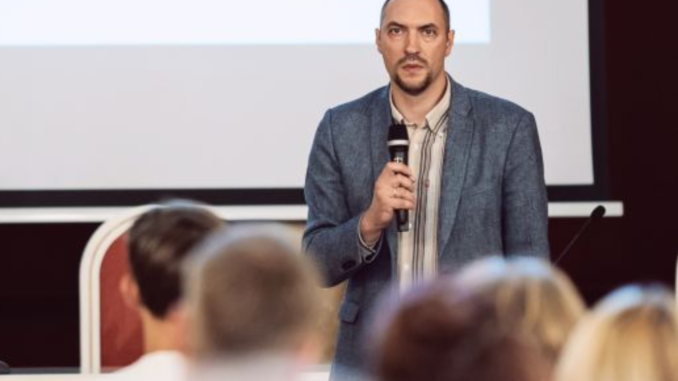
At the moment, in addition to official information about coronavirus, the situation in Lithuania and in the world, fake news is spreading. How can you distinguish which information is true and which is fake? How can you evaluate information and determine which sources to trust? Dr Viktoras Denisenko, a political communications expert from Vilnius University’s Faculty of Communications, discusses these questions.
“When talking about high-quality and poor-quality information, first we have to evaluate its source. Reliable information is provided by public authorities and quality media outlets. As a first step, one should look at a primary source or try to trace it. If somebody writes on social media that ‘the Prime Minister promised this’ or ‘the President said that’ it does not mean it is a trustworthy source. However, if the President is quoted on the official website of the President’s office, and the Prime Minister appeared on national TV, then this information is reliable. Certainly, the politicians lie sometimes or say nonsense, and journalists make mistakes, however, this is a different problem. Ultimately, an honest journalist will always try to fix his or her mistake and clarify information,” says Dr V. Denisenko.
The expert advises to listen to the specialists of the field: “Reliable information about coronavirus can be provided by the medics and scientists in this field. In the current situation, the expert opinion is especially valuable.”
It is about sharing (fake news)
Despite the Lithuanian media offering a lot of new information about coronavirus and its cases in the country, social media users create special groups in which unreliable information is often shared. Dr V. Denisenko considers that people are prone to share unreliable information not only during epidemics or pandemics.
“In the event of a crisis, this problem is more visible. Sharing information is one of the essential principles of social media. On the other hand, people often lack critical thinking or, to put in other words, critical evaluation of content before sharing it. Joining social media groups and trusting questionable information can be caused by dissatisfaction, mistrust of authorities, a critical attitude towards its actions, as well as the search for simple answers to difficult questions,” he claims.
According to Dr V. Denisenko, it is obvious that in critical situations demand for information is very high.
“People look for information, want to find out what is happening, understand how to react and how to avoid danger. When there is a demand, there is a supply. Not all information that is offered is good quality or reliable, but it can ‘bribe’ a user. As I mentioned, people tend to look for simple answers to difficult questions. During a panic situation, people tend to believe in statements that are comforting in a way, e.g., that a vaccine will soon be developed or that a diagnosis can be very simple such as just ‘holding breath for 10 seconds’ (this method for diagnosing coronavirus is nonsense). When in a panic, people tend to believe in exaggerated information because the foundation for panicking is a persuasion that everything is bad,” explains the expert.
Number one news
“Coronavirus is the No. 1 topic right now and this is objective. Just look at the measures being taken to stop it from spreading. It is not surprising that the media gives the greatest consideration of this topic. There is no lack of information. As far as I can evaluate, information is being provided expeditiously every day,” says the expert.
Nonetheless, even in this situation, he sees competition among the media: “One can notice certain manipulation, above all, exploiting the fears of the audience. It is sought that a reader or viewer visits that particular media outlet, not the competitor’s.”
Dr V. Denisenko advises to evaluate information more carefully during the quarantine and not to consume all of it: “I certainly suggest limiting the consumption of information. Constantly reading about coronavirus one can form an illusion of this topic’s absolutism. The self-hypnosis effect can be in point here, which means the perceived danger of coronavirus can overshadow all other daily life aspects, occupy all thoughts, etc. People should use information as a tool to orientate and react properly to situations but not to be enslaved by it,” claims the expert.
“I suggest reading long investigative journalism articles, listen or watch interesting podcasts. I like the idea that quarantine is not only a challenge but an opportunity as well. For instance, an opportunity to rediscover slow time,” advises Dr V. Denisenko.

Be the first to comment